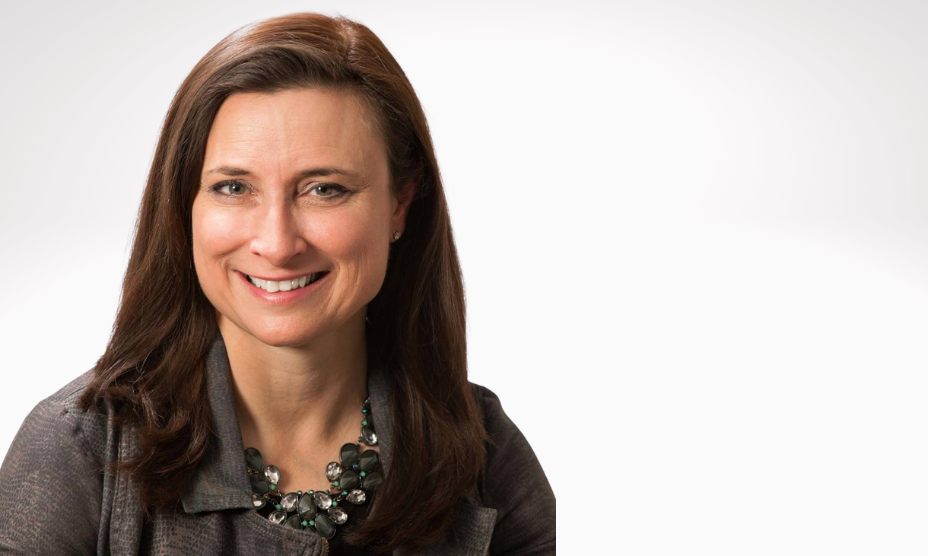The frail, dry branches in the Monsey woods drooped as the winter snow piled upon them. My friend Yehuda, an amateur photographer with an affinity for nature, maneuvered his steps around the forest’s dead roots and off-shooting twigs as he searched for what his eyes must have imagined—a 1-in-20,000 possibility, if he recalled correctly. He settled his footing a few paces later, and a quiet breath escaped his mouth like a whisper. Near silence echoed through the forest. Then he saw it: the white deer.
Knelt beside the ground a few yards ahead, it lay with a stark white coat and its dainty legs tucked beneath its belly. Brown speckles were splattered along its back, and small patches sat above its charcoal eyes. The snow-white fur glistened. When the shock of the “perfect-moment photograph” wore off, Yehuda composed himself and snapped his pictures.
His awe was due in part to seeing a rarity of nature in his own backyard—and its beauty did not disappoint—but that awe was also because of what seeing the white deer signaled to him. Less than one year earlier at the same site, Yehuda asked God to show him a white deer. He asked, God answered. The statistical wonder filled him with overflowing emotion, spilling into an abundant sense of gratitude. He took it as a sign that God loves him.
Months later, he found that white deer’s severed and bloody leg nearby. His symbol of Divine love lay strewn on the same grounds he first saw it.
As Yehuda told me this story years later—an impromptu reflection during an unrelated conversation—a sheepish smile crept across his face. “I guess it’s like Iyov says, right?” he asked in a chuckle. “God gives, and God takes” (Iyov 1:21).
***
There is something almost sinister about Iyov’s words.
God is the ultimate Giver, a Parent, the Sustainer and Protector of His beloved children. In times of distress, we seek out our parents. To run into familiar arms like the adolescents we once were, to wear their hug like a coat of armor. We take refuge in our parents’ embrace. Though ephemeral, when pressed against their beating heart, it feels everlasting. How terrifying would we feel in that space, then, to discover that it was our parent, the one who calms and caresses us, who induced our distress to begin with? We find comfort in God after loss, only to remember that it was He who took from us and caused that loss. It almost feels like an act of betrayal.
How does our faith fare in times of trauma? Our liturgy notes that God creates light and darkness, the world’s good and the world’s bad. It nods to the age-old question of how bad can exist if God is good, or here at all. It’s unsettling. The Epicurean paradox captures it well:
Is God willing to prevent evil, but not able? Then he is not omnipotent. Is he able, but not willing? Then he is malevolent. Is he both able and willing? Then whence cometh evil? Is he neither able nor willing? Then why call him God?
Jewish tradition grappled with this on its own terms. The Book of Iyov centers around that question, 42 chapters and all. Masechet Berachot 7a offers a more succinct glimpse into that tension. Moshe Rabbeinu is said to have made three requests of God: that the Divine Presence rest upon Israel, the Divine Presence not rest upon the nations of the world, and God reveal the nature of His ways to Moshe—soon after quoted as, “Master of the Universe! Why do the righteous prosper, the righteous suffer, the wicked prosper, and the wicked suffer?” In a few convoluted lines, the Talmud attempts to replicate God’s answer to Moshe. One appeals to an individual’s lineage to explain their misfortune and another considers the extent of the good person’s goodness, arguing that only the “completely righteous” avoid suffering. On their face, neither answer is particularly satisfying.
Maybe knowing that God sits among us, crying from an aching wound that won’t close, weeping for the unfairness of life, is enough to comfort us.
More interesting is that the Talmud soon reveals that only Rabbi Yochanan believes God answered all three of Moshe’s questions. For Rabbi Meir, however, “two [responses] were given to [Moshe], and one was not given to him.” The unrequited request is none other than the juiciest: Why do bad things happen to good people?
In Rabbi Meir’s view, the answer is larger than life. Humanity cannot receive it, either for our inability or our unworthiness. It echoes a conclusion reached by Iyov himself: “Indeed, I spoke without understanding of things beyond me, which I did not know” (42:3). God, in this understanding, never gave Moshe the answer. The Epicurean paradox stares Rabbi Meir in the face, and he stares right back.
Though that may not satiate the hungry philosophical mind, for Rabbanit Rachelle Fraenkel, it’s not meant to. In 18Forty’s series on God, she spoke about her relationship with God after her son, Naftali, was kidnapped and murdered in a 2014 terrorist attack in Israel. Eyal Yifrah and Gilad Shaer were the other two victims in that tragedy. All were teenagers.
For 18 days in June 2014, an intense search ensued across Israel, searching for the three boys who had been abducted by Hamas terrorists earlier that month. On June 30, their bodies were found buried beneath a heap of rocks 15 miles from where they were last seen. The discovery pierced the hearts of Jews across the world.
Rachelle did not—and does not—find comfort in the search for meaning many undertake in challenging times. She wasn’t looking to convey inspiration or faith from her grief; it wasn’t what made sense to her. Referencing a footnote in Rabbi Joseph B. Soloveitchik’s Kol Dodi Dofek, she says:
[T]here’s no use spending your energy on why and how and those questions, not even put in the sense of, why was something sent to me, to what goal was it sent, all that. It’s more about, “Okay, so what am I going to do with my life?” He sends us off that track altogether.
The pragmatics are what take precedence for Rachelle. Still, she does not oppose the questioning.
I must say that it doesn’t mean that the question shouldn’t be asked or cried out or yelled out. I think throughout our Neviim, you said, that the Bible is full of it. Chabakuk, Yirmiya, Moshe, Avraham, they all yell out to Hashem and say, “How could you do this?” Basically, that means that it’s all very, very legitimate. It’s a legitimate conversation. It just doesn’t mean that we’re going to get the answers.
This approach validates human pain, but succumbs to human limitation. How else, however, can the question be explored? Rachelle subscribes to Rabbi Meir’s opinion, but Rabbi Yochanan did think God answered Moshe. Whether or not one finds comfort in the Talmud’s suggested answers, the fact remains: A human was once shown “God’s ways,” why the righteous suffer and the wicked prosper. Can we find it once more?
***
The Beit HaMikdash was built and destroyed twice—in 586 BCE by Nebuchadnezzar and the Babylonians and in 70 CE by Titus and the Romans. The consequences of exile wrought millennia of persecution against the Jewish People. Tisha B’Av is a time to mourn our temple’s destruction and the global oppression that unfolded thereafter. In that sense, we may find Moshe’s question present here: Why would God allow our enemies to pillage our sacred space? Said another way: Why would God allow the wicked to prosper?
In Nefesh HaChayim 1:4, Rabbi Chaim of Volozhin rejects the question’s premise. Our enemies did not lay waste to the Beit HaMikdash—“pre-milled flour did you mill,” he quotes from Kohelet Rabbah 1:43. They may have destroyed its bodily structure, but it was the Jewish People who destroyed its soul. “Our sins ruined the upper dwelling, the lofty holy worlds,” he explains, “while they ruined only the lower dwelling.” This idea is seen throughout the Talmud, in which it explores reasons why the Beit HaMikdash was destroyed; the implication is that the destruction was decreed by God, a retribution of sorts for the people’s actions against His will. The answer to the Jewish People’s question of “Why?” is seen in the mirror. Had we remained good and true to God, its walls never would have caved. There is no one to blame but ourselves.
A philosophy like this appeals to human agency. It is humans, not God, who are to blame for the world’s failures. (That fits well in cases when suffering is brought by humans, but is seemingly inapplicable when nature or illnesses are the culprit, not a human.) Outside a more mystical lens like Nefesh HaChayim’s, the idea is found elsewhere in Jewish thought—chapter 12 of Rambam’s Moreh Nevukhim being one example. “We complain and seek relief from our own faults,” he writes. “We suffer from the evils which we, by our own free will, inflict on ourselves and ascribe them to God, who is far from being connected with them.” He delves into the subject with greater nuance and specificity, all geared toward the conclusion that evil in the world should pose no theological problems.
Adjacent to Rambam’s approach, though quite different, is that of specific unknowing but general understanding. Rabbi Akiva famously declares, “All God does, He does for good” (Berakhot 60b). This is meant to be an axiom in one’s life: Any sorrow that washes upon the shores is sent by God, and though the tide may appear to bring calamity, it is only for the best. The classic analogy given is that of a surgeon operating upon their patient. Without context, one would accuse the surgeon of barbaric practices or heinous activities. Understanding that the patient’s pain of surgery is actually a necessary act of kindness rebuffs that misperception. We are compared to the patient, God to the surgeon. From that premise, evil is nothing more than sight from the wrong angle.
The above is not an exhaustive list of Judaism’s handling of the Epicurean paradox—far from it. They are instead a glimpse into the diversity of responses that do exist. Setting that aside, perhaps there is another approach altogether, one that follows Rachelle’s lead in devaluing the philosophical urges during hard times but offers a different solution.
Are the theological fissures we experience, the existential eruptions that shatter our lives, questions that beg for answers? Or are they distractions for our pain, a reflex to interrupt the river of tears that flows into our lives? My rabbi, who had spoken to many survivors of intense tragedies, once told us that in times like those, we ask for philosophers, but we need psychologists.
When we are stripped of comforts we grew close to, love we intimately knew, we demand answers to explain our loss. But there may be other questions brewing within: Is God crying? Does He mourn like I mourn? Does He hurt like I hurt? The consolation we seek may not be in our minds, but in our hearts.
The first time Moshe encounters God, he is on the outskirts of Egypt, where his brothers and sisters suffer under brutish enslavement. God appears to Moshe as a bush blazing in fire, yet “the bush was not consumed” (Shemot 3:2). The Midrash finds intentionality in that divine manifestation. “Don’t you feel that I am pained when Israel is pained?” God asks Moshe. “Know, from the place that I speak with you of this thorn bush, so to speak, I share in their pain” (Shemot Rabbah 2:5).
We may not know why death knocks on some doors and waits for others, why fate can be an agent of havoc, why the Divine wills one way over another. And maybe we don’t need to. Maybe knowing that God sits among us, crying from an aching wound that won’t close, weeping for the unfairness of life, is enough to comfort us. Maybe it’s enough that God feels our pain, as if it were His own.





































